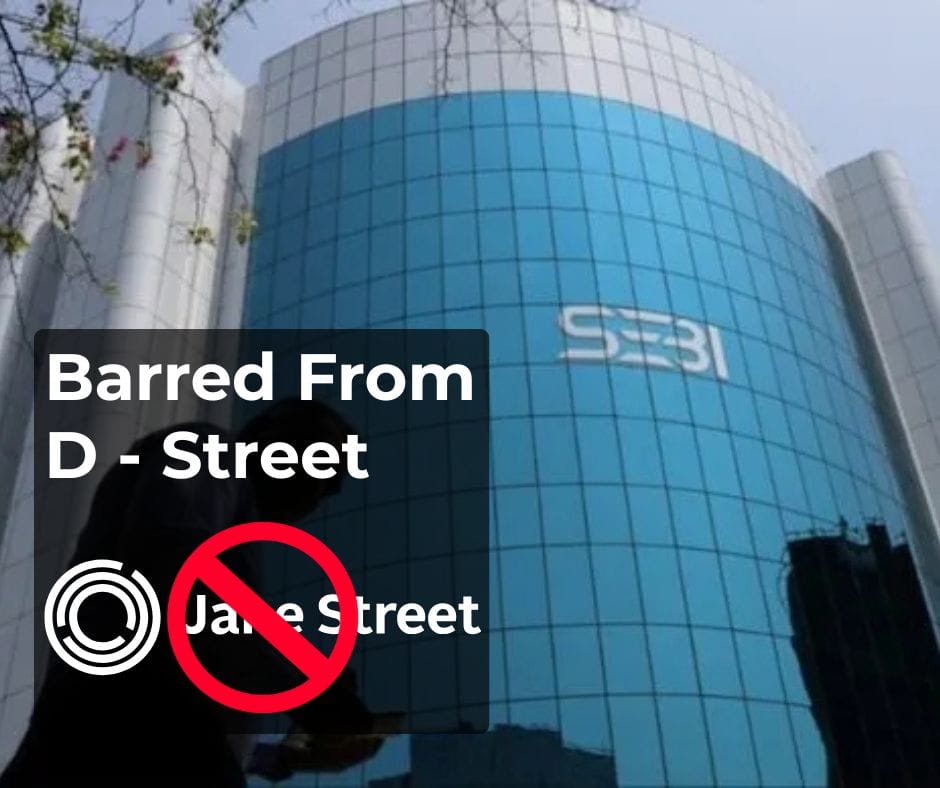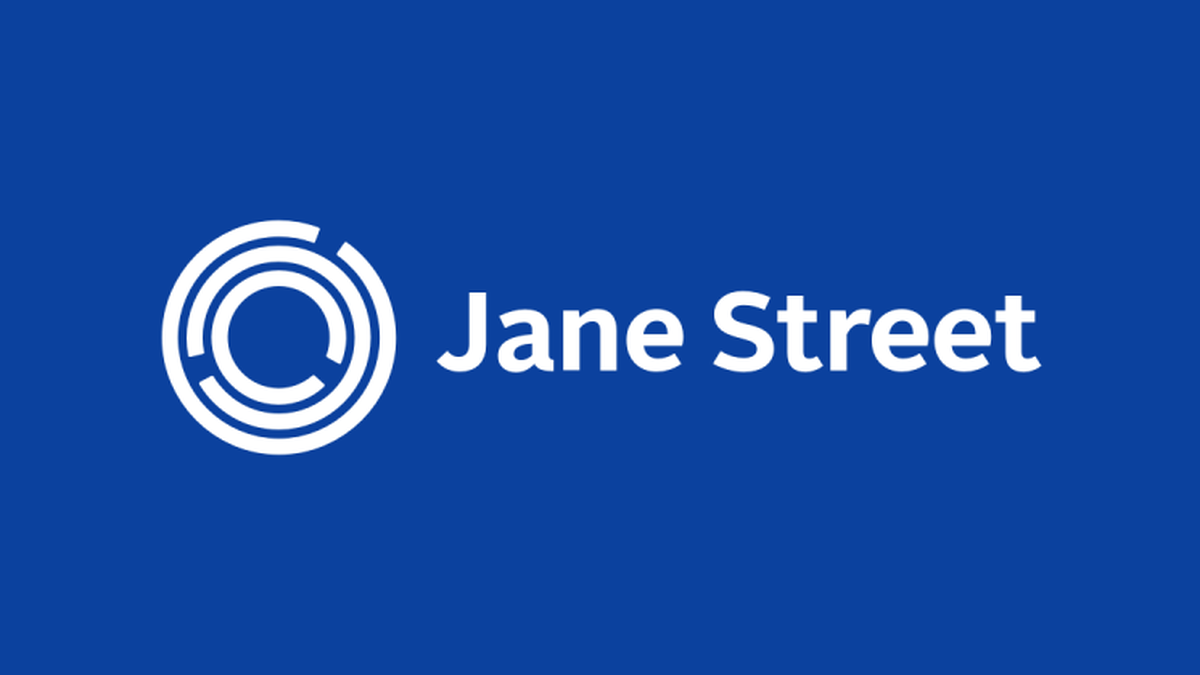Jane Street Barred from D-Street?

Quick TL;DR
SEBI has barred Jane Street, a global trading giant, from India's markets for alleged manipulation of index options (mainly BANKNIFTY). ₹43,289 crore in profits from index options under scrutiny. A whopping ₹36,500+ crore total profits were made during the period under investigation. The impact could reshape retail trader behavior, market integrity policies, and algorithmic trading norms in India.
Who Is Jane Street?
Jane Street is a US-based quantitative trading firm known for high-frequency, algorithm-driven trading across the globe. Think of them as the brains behind billions of micro-transactions that move markets every second — silently, swiftly, and mostly behind the scenes.
But in India, this global giant has just hit a regulatory wall — and that affects YOU, especially if you trade NIFTY or BANKNIFTY options.
What Did Jane Street Allegedly Do?
According to SEBI and multiple financial media reports:
Jane Street used a two-patch strategy to influence BANKNIFTY index levels and profit from index options.
“Two-Patch” Manipulative Strategy Explained:
| Patch | Time | Action | Market Impact |
|---|---|---|---|
| Patch I | 9:15–11:46 AM | Aggressively bought BANKNIFTY stock futures & cash to push index up. | Misled traders into thinking BANKNIFTY was rising. |
| Patch II | Post 11:46 AM | Dumped same positions aggressively. | BANKNIFTY fell; Jane Street profited from earlier built PUT options. |
On Jan 17, 2024 alone, Jane Street made ₹734.93 crore in profits!
How Much Did SEBI Say Jane Street Made Illegally?
From Jan 2023 to Mar 2025:
- Total Profit: ₹36,502 crore
- Index Options Profit: ₹43,289 crore
- Losses in Futures/Cash Segments: ₹7,687 crore
SEBI flagged this unusual profit concentration as a red flag, especially since it heavily skewed around weekly expiry days like Thursdays — the most volatile days in India’s derivatives market.
SEBI’s Interim Order: What’s the Charge?
SEBI invoked Sections 11(1), 11(4), 11B(1), and 11D of the SEBI Act.
The core allegation: “Intra-day Index Manipulation” and “Extended Marking the Close” to profit from misleading market moves on expiry days — a violation of PFUTP (Prohibition of Fraudulent and Unfair Trade Practices) regulations.
The barred entities include:
- JSI Investments Pvt Ltd
- JSI2 Investments Pvt Ltd
- Jane Street Singapore Pte Ltd
- Jane Street Asia Trading Ltd
All were linked through shared ownership and control to Jane Street Group LLC.
What This Means for Traders Like You
1. Improved Market Integrity
SEBI’s crackdown ensures less manipulation and fairer expiry pricing — especially for retail options traders who rely on transparent movements.
2. Possible Rise in Volatility Short-Term
With a major liquidity provider banned, bid-ask spreads may widen in the short run, especially in BANKNIFTY contracts.
3. Algorithmic Strategy Rechecks Incoming
Institutions running aggressive or opaque algos may now need to register, audit, and disclose them in India — SEBI’s signaling it won’t tolerate “shadow bots.”
What Should You Do Now?
- Stick to Fundamentals: Avoid FOMO and flashy trades near expiry. Wait for clean market signals.
- Beware of Volatility Traps: If you're an options seller, reprice your risk for Thursdays.
- Monitor Regulatory Updates: SEBI may soon tighten norms on index derivatives or algo disclosures. Stay tuned.
Final Word
This isn’t just about one firm being banned — it's a wake-up call for the Indian trading ecosystem. SEBI is asserting its global authority, defending the retail trader, and sending a message:
If you’re a trader, this is good news. If you’re an algo cowboy, time to clean up your act.
Sources:










